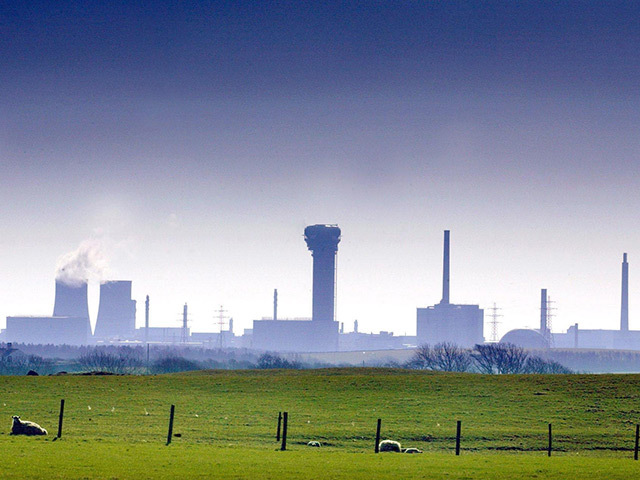
Japanese giant Toshiba is expected to confirm it is withdrawing from new nuclear projects outside Japan, dealing a blow to plans for a new power station in the UK.
The company has been reviewing its investment in overseas nuclear projects and is set to make an announcement on Tuesday.
Toshiba owns Westinghouse, the American-based nuclear developer whose AP1000 nuclear reactors are to be used at a planned £10 billion power plant at Moorside in Cumbria.
Toshiba has a 60% stake in Nugen, the company which plans to build at Moorside, near Sellafield, so pulling out would leave the Government having to look for new backers.
Chris Jukes, the GMB union’s senior officer for Sellafield, said: “A new build at Moorside is part of a vital broader and home grown energy mix – built, maintained and operated by British workers.
“Brexit should be a perfect opportunity to demonstrate conclusively a better way for nuclear in West Cumbria. For 70 years Whitehaven has been a hub for nuclear.
“The West Cumbria area must have new build to drive the regeneration that would follow with a new plant. New infrastructure, new roads, better railways, demand for housing, health and school places, would all follow a brand new power plant. All of these can fuel employment and keep skills in the area.
“That is why we are calling on the British Government to commit the investment that is lost by Toshiba pulling out and for the British and Japanese Governments to work together on a broader solution so that post Brexit, West Cumbria jobs, skills and nuclear futures are guaranteed.”
Unite national officer for energy Kevin Coyne said: “This is potentially a deeply troubling development and points to the need for the Government to take a more strategic approach in bringing new nuclear power stations on stream.
“Whether the UK can keep the lights on cannot be left to the vagaries of the market or business decisions taken on the other side of the globe.
“Government ministers must step in if needed with guarantees to secure the Moorside project and the tens of thousands of livelihoods that depend on Cumbria’s nuclear industry.”
